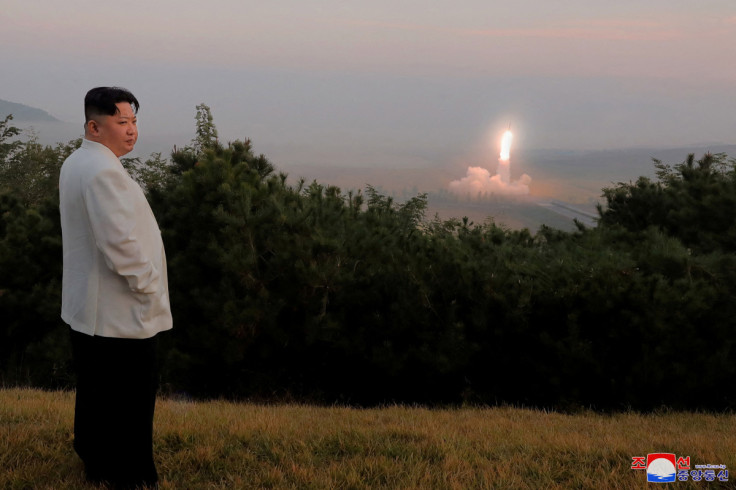As North Korea Prepares For Nuke Test, US Warns Of Using Nuclear Deterrent
KEY POINTS
- Pyongyang has completed preparations for its seventh nuclear test, South Korea said
- The U.S., S. Korea, Japan have been closely monitoring the Punggye-ri nuclear test site
- North Korea passed a law enshrining the right to use preemptive nuclear strikes to protect itself
With reports saying that North Korea had completed preparations for its seventh nuclear test, the first since 2017, the Deputy Secretary of State Wendy Sherman has said that the U.S. will make full use of its military capabilities, "including nuclear, conventional and missile defense," to defend its allies, Japan and South Korea.
Warning Pyongyang against escalating its provocations, Sherman said North Korea needs to understand that the U.S. commitment to the security of South Korea and Japan is "ironclad."
"And we will use the full range of U.S. defense capabilities to defend our allies, including nuclear, conventional and missile defense capabilities," she said, as quoted in a report by the Associated Press.
Terming North Korea's repeated firings of ballistic missiles and artillery in recent weeks as "deeply irresponsible, dangerous, and destabilizing," Sherman called them provocative military actions.
Meanwhile, in an address at the South Korean National Assembly on Tuesday, President Yoon Suk-yeol said North Korea had completed preparations for its seventh nuclear test.
The South Korean President also slammed the North for a recent flurry of missile tests. Pyongyang has described them as practice runs for the use of tactical nuclear weapons.
"Not only have they openly stated their intentions to pre-emptively use nuclear weapons, it appears they have already completed preparations for a seventh nuclear test," Yoon was quoted as saying.
North Korea recently passed a law enshrining the right to use preemptive nuclear strikes to protect itself. Under the law, passed by the country's rubber-stamp parliament, North Korea said it will carry out a preventive nuclear strike "automatically" and "immediately to destroy hostile forces," when a foreign country poses an imminent threat to the country and its dictator, Kim Jong-un.
"There is absolutely no such thing as giving up nuclear weapons first, and there is no denuclearization and no negotiation," Kim Jong-un said in a speech at his country's parliament.
South Korea's intelligence agency had late last month assessed that North Korea could conduct the nuclear test between the National Congress of the Chinese Communist Party, which concluded Saturday, and the U.S. midterm elections which will be held on Nov. 8.
The U.S., South Korea, and Japan have been closely monitoring North Korea's Punggye-ri nuclear test site where Pyongyang conducted all six of its underground nuclear tests between 2006 and 2017. Intelligence reports said that preparations at the site's underground nuclear test tunnel are complete for the seventh test.
The last time North Korea tested a nuclear bomb in 2017, the explosion at its Punggye-ri test site generated a blast yield of between 100-370 kilotons. For context, a 100-kiloton bomb is six times more powerful than the one the U.S. dropped on Hiroshima in 1945.
A 2017 report in the Washington Post cited a confidential intelligence assessment that said North Korea had crossed a key threshold on the path to becoming a full-fledged nuclear power by successfully producing a miniaturized nuclear warhead that can fit inside its missiles.

© Copyright IBTimes 2024. All rights reserved.






















